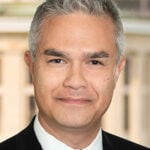News
Audits, Investigations, and Health Care Litigation
Audits, Investigations, and Health Care Litigation
Health care providers and suppliers always have one eye on the rear-view mirror, aware that payors, both governmental and private, continue to monitor and audit billing and payment activity. Most every provider and supplier has, from time to time, received requests for supporting documentation or additional explanation to support billing and payment for items or service rendered, and many providers and suppliers have been faced with notices demanding refunds of alleged overpayments. It is crucial that health care organizations respond quickly in such instances to defend appropriate payments that could be subject to recoupment by overzealous auditors and to promptly resolve payment errors that could morph into more serious compliance issues if left unaddressed. In addition to increasing payor audit/review activity, health care providers and suppliers additionally face new “reverse false claims act” liability for overpayments, increasing DOJ/HHS-OIG enforcement activity and increasingly complex billing and coding requirements. Going beyond billing and reimbursement, health care providers and suppliers also face ongoing oversight by licensing and other regulatory enforcement agencies and bodies, and “patient-facing” disputes, such as those involving consent issues and decision-making for incapacitated patients, professional competence and behavior of practitioners, and reporting (both mandatory and voluntary).
Our attorneys regularly counsel health care providers on how to respond as these situations present themselves. We work with expert outside consultants to limit our client’s risk exposure and maximize their economic returns, and we zealously advocate on their behalf when matters rise to the level of administrative appeals/challenges and/or legal action.
Taft attorneys provide the following services to our clients in the audits, investigations and health care litigation industry:
- Navigating patient and surrogate decision-maker consent, advance directives and related treatment issues.
- Health care provider licensure and disciplinary matters.
- “Patient-facing” matters, including representation and advice regarding guardianship, probate, DNR/advance directive and related matters.
- Other risk management and crisis management advice, counseling and representation.
- Administrative proceedings and appeals.
- False Claims Act litigation, including qui tam actions.
- Commercial and business litigation.
- Arbitration and other alternative dispute resolution.
- Medical research proceedings, including FDA enforcement actions (defense of sponsors, investigators and IRBs).
- Medical staff fair hearings.
- Medicare and Medicaid appeals.
- Representing providers in claims relating to health care fraud and abuse.
- White collar criminal defense.
- Payer disputes, settlements and litigation.
- E-discovery.
- Medical board complaint defense.
Related Industries
Notable Matters
Representative matters for our audits, investigations and health care litigation industry clients include:
- Represented medical practices in connection with Medicare Recovery Audit Contractor audits.
- Represented physicians and other licensed health care professionals in front of state licensure and other regulatory bodies.
- Represented medical researchers and institutions in connection with FDA 483s and warning letters.
- Represented health care providers, practices and institutions/facilities in federal and state civil and criminal investigations and proceedings.
- Handled complaints to the state medical board against physicians, nurses and other licensed professionals.
- Assisted clients in self-reporting of HIPAA violations to the Office of Civil Rights and interacted with the Office of Civil Rights in its follow up investigation.
- Provided Stark Academic Medical Center Exception analysis.
- Upper Payment Limit (“UPL”) program analysis and compliance.
- HIPAA security breach reporting.
- Billing and collection compliance issue identification resolution and potential self-reporting.
News
Taft Secures Major Victory in Michigan Behavioral Health Litigation News
Hickner to Speak at Healthcare Capital Markets and Innovation Summit Law Bulletins
From Lemons to Lemonade – Supervalu and the Renewed Importance of Advice Evidence in False Claims Act Matters















